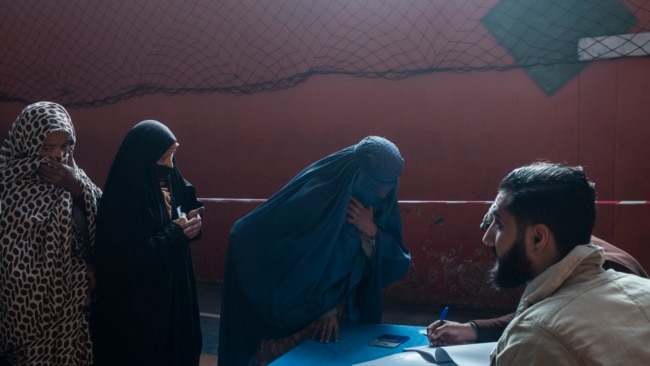アフガニスタン への支援、制裁により届かず
市民へ支援を届ける手段は何でしょうか?
タリバンが、今とっている政策である人権侵害、前政権へ寄与したであろう人々への殺害という報復、女性軽視に差別、それらアフガンの人々の生命・人権をも守ることの約束と引き換えにした制裁解除とはならないのでしょうか。もちろん、その後の監視の受け入れも盛り込むべきでしょう。
「なぜタリバンは市民を制圧したいのか?」とタリバン政権に聞きたいです。イスラム原理主義を貫きたいのであれば、自分たちだけの領域でだけで生きていけばいいのでは?
どこも同じですが、体に、心に、脳に刷り込まれたイデオロギーというのは変わりようがないし、変えようもないのだとつくづく思います。”自分たちが正義である、自分たちの理想郷が本当のあるべき姿”だと。それを自国民へ浸透させ、世界へ自分たちが持っているイデオロギーを示したいのだと思えてなりません。
精神世界は、もっと崇高なのではないですか?
なんとか”神速な行動を”!!!!
VOAで英語を学び、世界を見つめましょう!!!
そして声をあげましょう!!
赤十字の公式見解: アフガニスタンの人道的危機を終わらせるためには迅速な行動が必要 (和訳)
Red Cross Official: Fast Action Needed to End Afghan Humanitarian Crisis
赤十字の幹部は、アフガニスタンへの制裁と国際援助の凍結が続いていることを厳しく批判し、これらの措置が住民への基本的サービスの提供を妨げていると述べています。
赤十字国際委員会(ICRC)の活動ディレクターであるドミニク・スティルハート氏は、月曜日に6日間にわたる声明を発表しました。彼は月曜日、6日間にわたってアフガニスタンの野戦病院を訪問したことについて声明を発表しました。飢えた子どもたちの苦しみと、その親の苦悩を語っています。
国連によると、アフガニスタンの推定人口4,000万人のうち半数以上が、より多くの資金が提供されない限り、この冬に飢える可能性があるといいます。世界食糧計画によると、燃料費の高騰、食糧価格の上昇、肥料の高騰など、これらすべてがアフガニスタンの危機を悪化させる要因となっているといいます。
スティルハート氏は、アフガニスタンに対する国際的な規制について最も怒りを覚えるのは、そこにいる民間人の苦しみが “man-made.” "人災 "であるということだと語っています。アフガニスタンのタリバン指導者に制裁を加えた国際社会にも責任があると彼は言います。
米国主導の外国軍の撤退後、イスラム教のタリバンが政権を取り戻したことで、経済危機が発生しました。20年以上にわたる戦争と、長期にわたる乾燥した気候の蔓延により、アフガニスタンの人道的ニーズは記録的なレベルにまで高まりました。
国際社会はタリバン政府を外交的に承認することを拒否しています。人権活動家たちは、タリバンの女性への扱いを非難しています。タリバンは、ほとんどの女性の有給雇用を禁止し、ほとんどの女性の教育を制限しました。
国際的な承認を得られなかったことで、アフガニスタンへの年間数十億ドルの海外援助が凍結されました。米国はまた、タリバンが100億ドル相当のアフガニスタンの資金と財産を手に入れることを阻止しました。この制裁により、タリバンは労働者への支払いや必要な商品の輸入が非常に困難になっています。
スティルハートさんによると、最近の国連決議や一般的な経済制裁により、援助国は援助内容を再考するようになったといいます。その結果、民間人への救命支援が滞っていると述べています。
ICRCは月曜日、アフガニスタンの18の医療センターと5,100人の従業員を支援する活動を開始しました。援助団体は運営費を負担し、医療品を提供しています。ICRCによると、この活動は6ヶ月間継続する予定だそうです。
’クリエイティブな解決策’が必要
ドミニク・スティルマン氏は、アフガニスタンの医療と教育の将来は、国際的な支援にかかっていると言います。
「各国はアフガニスタンに関与しなければなりません。それが、医療や教育などの基本的なサービスが完全に崩壊するのを防ぐ唯一の方法です。政治的な理由で人道的行動を妨げるべきではありません」とスティルハート氏は言います。
専門家によれば、ワシントンをはじめとする西側諸国の政府には、アフガニスタンへの対応で良い選択肢はほとんどないといいます。タリバンとの協力を試みるか、危機が悪化して20年間の開発努力の成果が失われるのを見守るか、です。
スティルハート氏は、何百万人ものアフガニスタン人の命を救うために、”創造的な解決策”を見つけることを支援者に求めています。また、AFP(フランス通信社)の取材に対し、「カブールの権力者を罰するための経済制裁が、かえってアフガニスタンの何百万人もの人々を、生きていくために必要な基本的なものから遠ざけている」と述べました。
銀行サービスへの制裁は、経済に打撃を与え、援助を届けるのを困難にしているといいます。
’本当に情けない’反応
10月、G20と呼ばれる主要経済国のグループは、アフガニスタンの危機について話し合いました。タリバンの悪用から守ることのできる、より多くの援助を提供する方法を模索することで合意しました。
メンバーの1つであるEUは、アフガニスタンに11億5000万ドルの援助を行うと発表した。
今月初め、ノルウェー難民評議会(NRC)のJan Egelandヤン・エゲランド事務局長は、寒さが厳しくなる前にアフガニスタンとその周辺国に援助物資を届けるべきだと述べています。彼は、アフガニスタンの人々の苦しみに対する国際的な反応を”本当に哀れなもの”と呼びました。
Red Cross Official: Fast Action Needed to End Afghan Humanitarian Crisis
A Red Cross official has sharply criticized the continuation of sanctions and freezes in international aid to Afghanistan. The official says the measures are preventing the delivery of basic services to the population.
Dominik Stillhart is the director of operations for the International Committee of the Red Cross (ICRC). He released a statement Monday about his six-day visit to field hospitals in Afghanistan. He described the suffering he saw of hungry children and the anguish of their parents.
The United Nations says more than half of Afghanistan’s estimated 40 million population is likely to go hungry this winter unless more money is donated. The World Food Program said that fuel costs are up, food prices are rising, fertilizer is more expensive, and all of this feeds into the worsening Afghan crisis.
Stillhart said what makes him most angry about international restrictions on Afghanistan is that the suffering of civilians there is “man-made.” The international community is to blame, he says, for its decision to place sanctions on Afghanistan’s Taliban leaders.
The return to power of the Islamist Taliban after the withdrawal of U.S.-led foreign troops caused an economic crisis. Afghan humanitarian needs rose to record levels following the more than 20 years of war and a long, widespread period of dry weather.
The international community has refused to give diplomatic recognition to the Taliban government. Human rights activists condemn its treatment of females. The Taliban banned women from most paid employment and restricted education for most females.
Lack of international recognition resulted in a freeze of several billion dollars in yearly foreign assistance to Afghanistan. The U.S. has also blocked the Taliban from $10 billion worth of Afghan money and property. The sanctions have made it very difficult for the Taliban to pay workers or import needed goods.
Stillhart said that recent resolutions from the U.N. and general economic sanctions have caused donors to reconsider the assistance they provide. That has resulted, he said, in a slowdown of live-saving help to civilians.
On Monday, the ICRC launched an effort to support 18 Afghan medical centers and their 5,100 employees. The aid group is paying for operational costs and providing medical supplies. The ICRC says it plans to continue the effort for six months.
'Creative solutions' needed
Dominik Stillman says the future of medical care and education in Afghanistan are dependent upon international support.
“States must engage with Afghanistan. This is the only way to prevent a total collapse of essential services like health care and education. Political considerations should not interfere with humanitarian action,” Stillhart said.
Experts say Washington and other Western governments have few good choices in dealing with Afghanistan. They can either try to work with the Taliban or they can watch the crisis worsen, destroying gains made from 20 years of development efforts.
Stillhart is urging donors to find “creative solutions” to save the lives of millions of Afghans. He told the Agence France-Presse (AFP) that the economic sanctions "meant to punish those in power in Kabul are instead freezing millions of people across Afghanistan out of the basics they need to survive.”
Sanctions on banking services hurt the economy and make it hard to deliver aid, he said.
'Really pitiful' reaction
In October, the group of leading economies known as the G-20 discussed the crisis in Afghanistan. They agreed to look for a way to provide more aid that can be protected from Taliban misuse.
One member, the European Union, announced it would provide $1.15 billion in aid for Afghanistan.
Earlier this month, Jan Egeland, secretary general of the Norwegian Refugee Council (NRC), said aid should reach Afghanistan and the neighboring countries before cold weather sets in. He called the international reaction to the suffering of Afghans “really pitiful.”
Words in This Story
sanctions – n. an action that is taken or an order that is given to force a country to obey international laws by limiting or stopping trade with that country, by not allowing economic aid for that country — usually plural
anguish – n. extreme suffering, grief, or pain
engage with – phrasal verb. to give attention to something: to deal with
essential – adj. extremely important and necessary
pitiful – adj. causing feelings of dislike or disgust by not being enough or not being good enough
